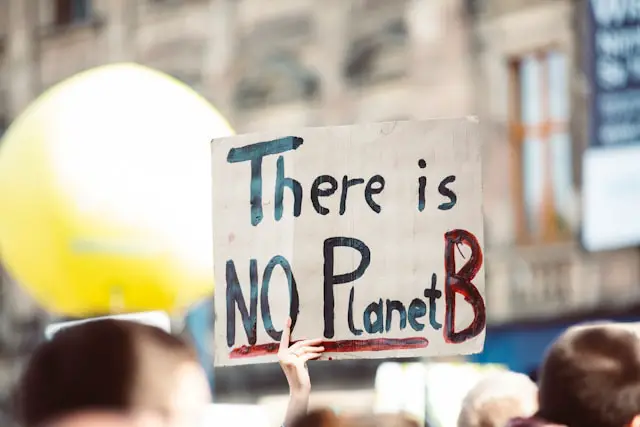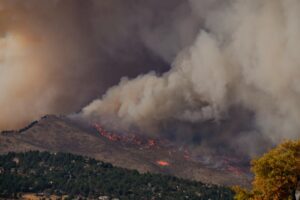As the urgency for corporate environmental responsibility (CER) grows worldwide, a surprising barrier lingers in many communities: climate change denial. Despite the overwhelming scientific consensus on climate change, regional differences in public beliefs and perceptions still play a pivotal role in shaping how companies respond to environmental challenges. A cutting-edge study, recently published in the Journal of Business Ethics, investigates this dynamic and delivers essential insights for sustainability professionals, executives, and policymakers seeking to drive impactful environmental change123.
What Is Climate Change Denial—and Why Does It Matter for Business?
Climate change denial refers to skepticism about the existence, human causation, or risks associated with climate change. In the U.S., recent surveys reveal that nearly 30% of adults still question the reality of climate change—even as record-breaking wildfires, hurricanes, and heatwaves provide mounting evidence.
This denial is not just a social issue. The study finds that firms located in U.S. counties with higher levels of climate change denial have:
- Weaker environmental performance ratings
- Greater likelihood of violating environmental regulations
- Larger environmental costs imposed on society
These patterns persist even after accounting for demographic, religious, and political factors. In short, climate change denial in the local community directly translates to poorer corporate environmental performance—regardless of a company’s size or sector13.
The Evidence: Regional Beliefs Shape Corporate Actions
1. Regional Survey Data
Using a novel dataset based on U.S. county-level climate change perceptions, researchers constructed a unique index of local climate change denial. This index draws from surveys that measure belief in climate change, perceptions of risk, and support for governmental action.
2. Environmental Performance Metrics
To assess corporate behavior, the study tracked:
- Environmental scores from respected ESG (environmental, social, and governance) databases.
- Federal environmental compliance violations.
- Calculated environmental costs passed on to society.
3. Key Findings
The results are clear and robust:
- A one standard deviation increase in local climate change denial correlates with about a 5% drop in corporate environmental responsibility scores.
- Firms in “denialist” areas are more likely to breach environmental laws.
- These firms also impose higher hidden environmental costs—such as pollution, carbon emissions, or resource depletion—on their communities13.
The Science: How and Why Does Local Denial Influence Businesses?
The institutional theory of organizations helps explain these results. Businesses are embedded within communities and respond to the social norms, values, and expectations around them:
- Social acceptance: In high-denial regions, corporate polluters face less public scrutiny and softer market or legal repercussions, so they often do less to curb their impact.
- Weaker pressure for change: If local customers, employees, and policymakers doubt the urgency of climate change, demand for green innovation or strict compliance drops.
- Organizational culture: Climate-skeptical communities may produce corporate leaders, managers, and investors who underestimate environmental risks.
Even in the face of robust national regulations, the “local environment” for business profoundly shapes whether sustainability efforts thrive or stall13.
Can Strong Corporate Governance Break the Cycle?
There’s hope: the study also shows that strong corporate governance and a committed corporate culture can moderate the negative effects of local climate change denial:
- Companies with clear environmental policies, ethical leadership, and transparent reporting fare better, even in denial-heavy communities.
- When boards and management champion sustainability, they can buffer or override local skepticism and set their own standards.
This sends a powerful signal to investors, consumers, and regulators: Leadership and accountability matter, and “islands of excellence” are possible even where public opinion is lagging13.
Takeaways: Implications for Business, Policy, and Society
For Businesses:
- Assess your local context. If you operate where climate denial is high, proactive communication and transparent sustainability initiatives can build legitimacy and trust.
- Invest in strong governance. Empower your board, leadership, and workforce to champion environmental priorities—regardless of local attitudes.
For Policymakers:
- National and state-level interventions remain critical, especially where local beliefs undermine sustainability norms.
- Educational campaigns are vital to shift public perceptions and, over time, reshape the values that inform corporate conduct.
For Investors and Stakeholders:
- Don’t just look at company size or headline ESG scores—dig deeper into local context and governance standards.
- Support organizations that work to close the gap between science and community attitudes.
Conclusion: Bridging Belief and Action for a Sustainable Future
The link between climate change denial and corporate environmental responsibility underscores a neglected but potent lever for change: community values. By recognizing and addressing the social context in which businesses operate, leaders can foster a culture of sustainability that breaks through barriers of skepticism and inertia. Addressing climate change requires more than regulation; it demands a shared societal commitment—starting with changing minds, hearts, and ultimately, business practices13.
Keywords: climate change denial, corporate environmental responsibility, ESG, sustainability, organizational culture, governance, regional beliefs, community norms, business ethics
- https://link.springer.com/article/10.1007/s10551-024-05625-y
- https://philpapers.org/rec/AFZCCD
- https://scarab.bates.edu/cgi/viewcontent.cgi?article=1382&context=envr_studies_theses
- https://sussex.figshare.com/articles/journal_contribution/Climate_change_denial_and_corporate_environmental_responsibility/25470259
- https://osuva.uwasa.fi/handle/10024/17747
- https://tede.unioeste.br/bitstream/tede/7588/2/Vanessa_%20Zamban_2024.pdf
- https://ouci.dntb.gov.ua/en/works/40yR3Dyl/
- https://www.nature.com/articles/s41598-025-01045-8
- https://ouci.dntb.gov.ua/en/works/98e8wmY7/







